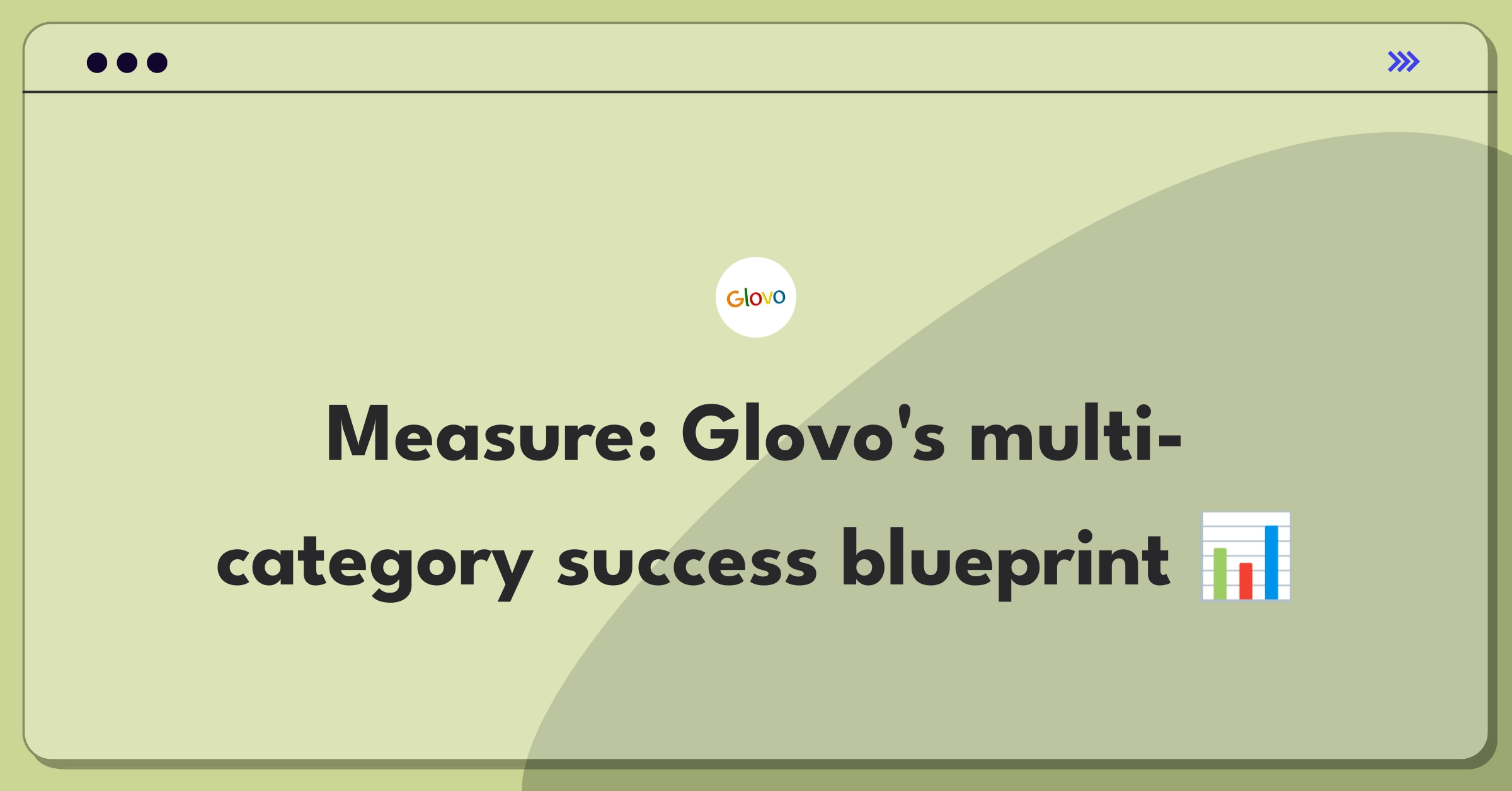Introduction
Defining the success of Glovo's multi-category ordering system requires a comprehensive approach that considers various stakeholders and metrics. To address this product success metrics challenge effectively, I'll follow a structured framework covering core metrics, supporting indicators, and risk factors while considering all key stakeholders.
Framework Overview
I'll follow a simple success metrics framework covering product context, success metrics hierarchy.
Step 1
Product Context
Glovo's multi-category ordering system is a platform that allows users to order a wide range of products and services from various merchants through a single app. Key stakeholders include:
- Customers: Seeking convenience and variety
- Merchants: Looking to expand their reach and sales
- Delivery partners: Aiming for consistent work and fair compensation
- Glovo: Focused on growth, profitability, and market share
The user flow typically involves:
- Opening the app and selecting a category
- Browsing available options and adding items to cart
- Reviewing order and proceeding to checkout
- Tracking order and receiving delivery
This system fits into Glovo's broader strategy of becoming a one-stop-shop for on-demand services, differentiating itself from competitors like Uber Eats or Deliveroo by offering a wider range of categories beyond just food delivery.
In terms of the product lifecycle, Glovo's multi-category system is in the growth stage, with ongoing expansion into new markets and categories.
Subscribe to access the full answer
Monthly Plan
The perfect plan for PMs who are in the final leg of their interview preparation
$99 /month
- Access to 8,000+ PM Questions
- 10 AI resume reviews credits
- Access to company guides
- Basic email support
- Access to community Q&A
Yearly Plan
The ultimate plan for aspiring PMs, SPMs and those preparing for big-tech
$99 $33 /month
- Everything in monthly plan
- Priority queue for AI resume review
- Monthly/Weekly newsletters
- Access to premium features
- Priority response to requested question


.png)